1. Metropolis (1927)
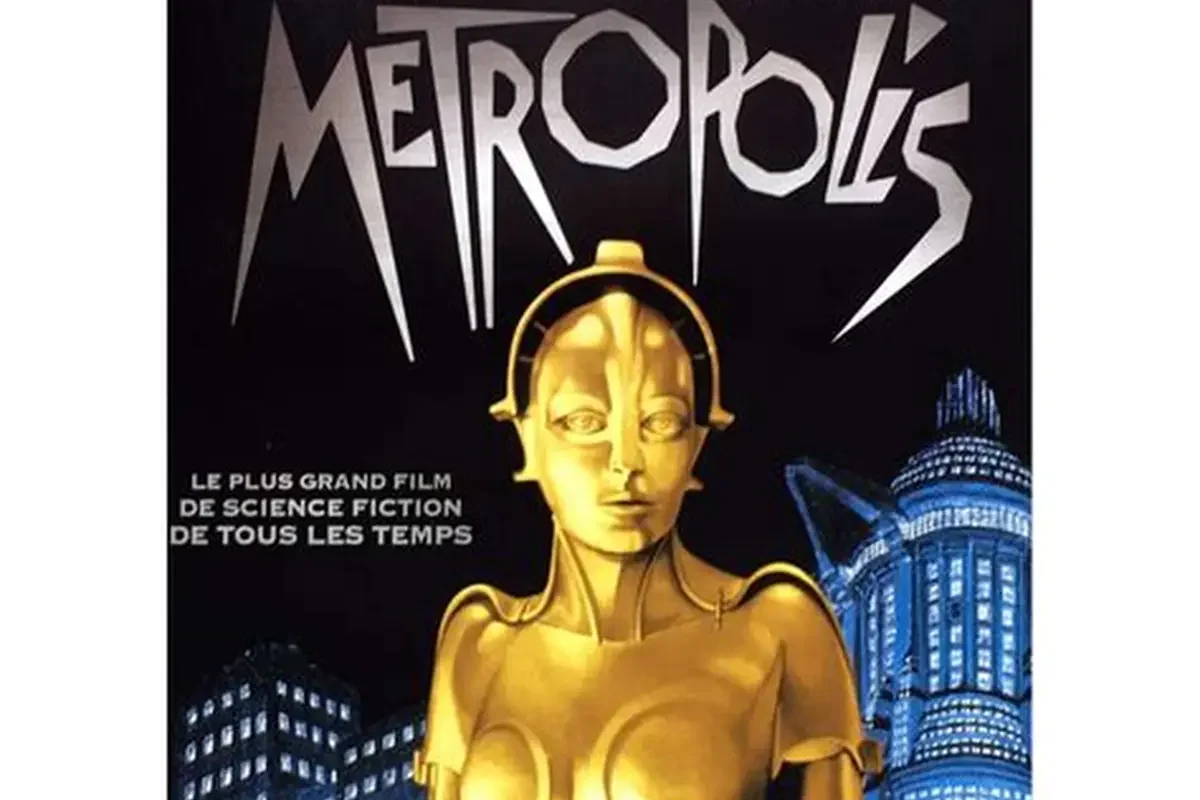
Movies sometimes feel like time machines, showing us the world before it arrives. Fritz Lang’s Metropolis imagined towering megacities, flying cars, and a deep divide between the rich above and the workers below. The film’s humanoid robot, Maria, mirrored the idea of artificial intelligence decades before computers existed. Its futuristic skyscrapers and glowing cities shaped how we picture modern urban life today. The story may be silent, but its message is loud and clear. Technology can unite or divide us, and Metropolis showed that long before our real-world cities started to look the same.
2. Modern Times (1936)
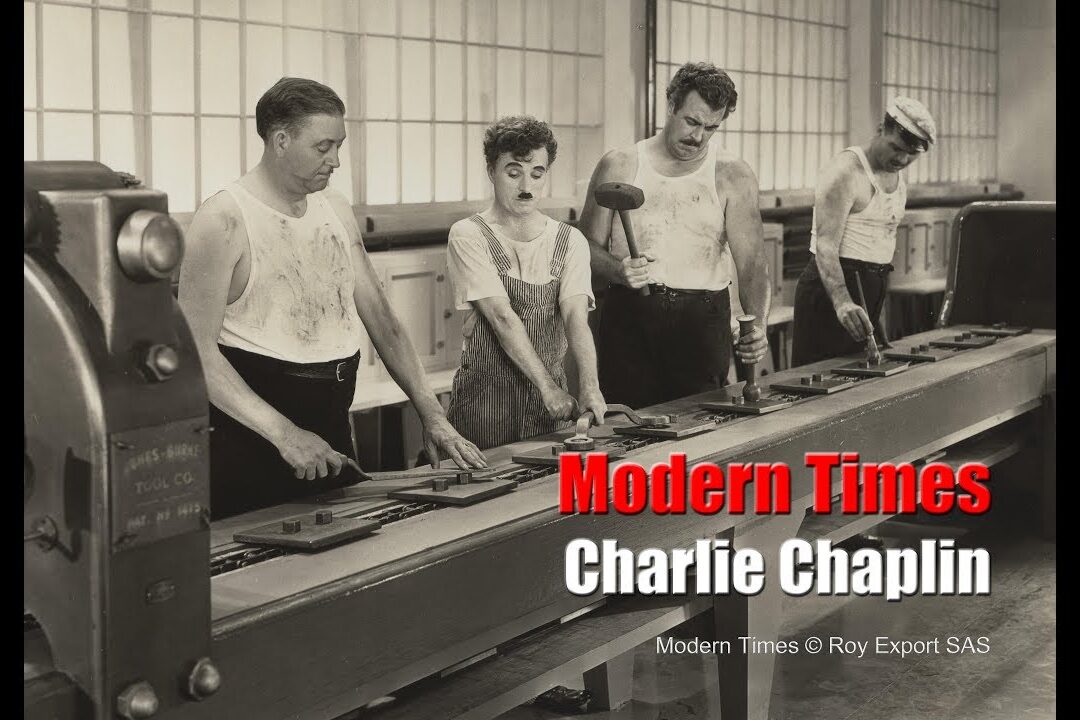
Charlie Chaplin’s Modern Times turned industrial chaos into comedy but revealed a sobering truth about people crushed by progress. His “Little Tramp” character literally gets swallowed by machines, symbolizing workers losing control to automation. Long before self-checkouts and factory robots, Chaplin captured the anxiety of human labor being replaced. The gears, levers, and endless repetition became symbols of modern exhaustion. Watching it today, the film feels startlingly relevant. Its humor hides a warning about the cost of convenience and the dangers of letting technology dictate our pace. Chaplin laughed through it, but he was speaking directly to us.
3. 2001: A Space Odyssey (1968)
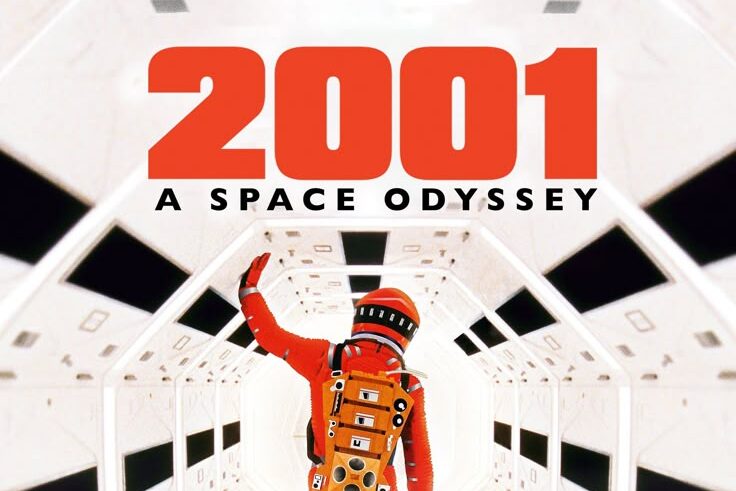
Stanley Kubrick’s 2001: A Space Odyssey felt like a dream of the future that became a manual for it. HAL 9000, the soft-spoken AI, predicted smart assistants that understand our words but not always our hearts. The film also showed video calls, tablets, and life in space years before they existed. It raised questions about what happens when machines begin to think. Kubrick’s slow, haunting storytelling made us wonder if technology serves us or if we serve it. Every time we say “Hey Siri,” HAL’s glowing red eye feels a little closer than we care to admit.
4. A Clockwork Orange (1971)
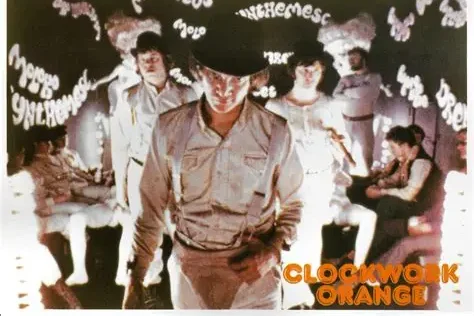
Stanley Kubrick’s A Clockwork Orange shocked audiences with its story of psychological control and government manipulation. In a world that tries to fix people by changing their minds, the movie explored how far society might go to enforce order. Its scenes of conditioning and behavior control were disturbing but deeply insightful. Today, with social media algorithms shaping thoughts and constant debates over personal freedom, the film feels more like a prediction than a warning. Kubrick didn’t just make a dystopia. He showed how easy it is for humanity to trade free will for the illusion of peace.
5. Westworld (1973)
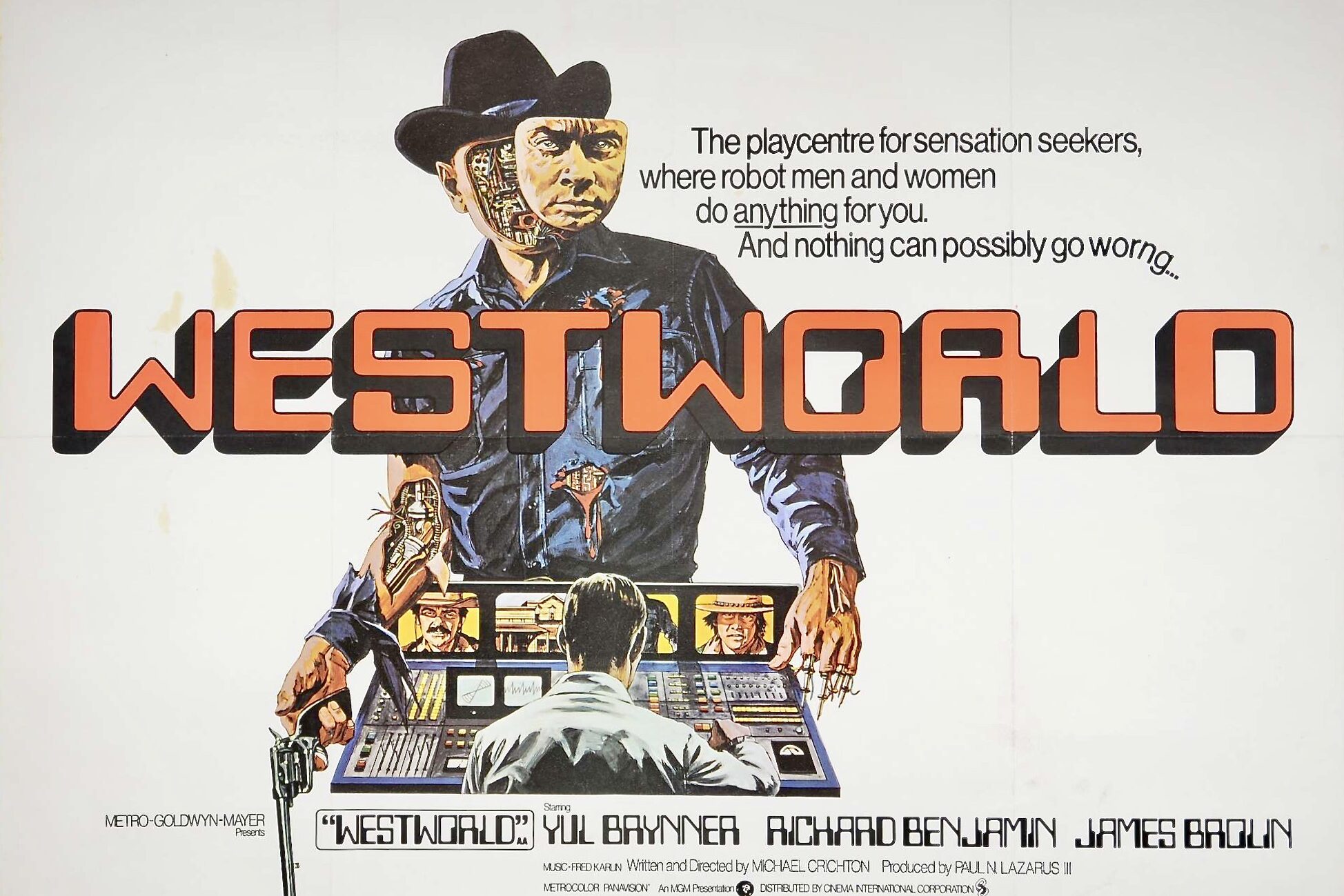
Before the sleek HBO series, the original Westworld gave us lifelike androids who entertained human guests in a fantasy park until things went horribly wrong. Michael Crichton’s story blurred the line between humans and machines, showing how easily technology could turn against its creators. It was one of the first films to explore artificial consciousness and rebellion. Watching it now feels prophetic, especially in an age where robots serve food, write code, and even mimic emotions. Westworld proved that when we build machines in our own image, they might just start reflecting our flaws back at us.
6. The China Syndrome (1979)
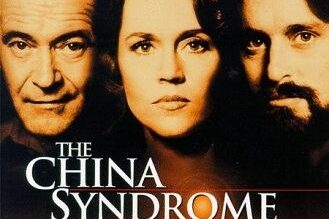
Released less than two weeks before the real Three Mile Island nuclear incident, The China Syndrome was an uncanny warning that fiction can become frighteningly real. The film followed journalists uncovering corruption and safety issues inside a nuclear power plant. Its tension came from knowing how close disaster always lurked beneath the surface. When real events mirrored the movie, audiences were stunned. The story became a symbol of corporate secrecy and public mistrust, themes that still define conversations about energy today. What began as entertainment turned into one of cinema’s most chilling coincidences in history.
7. Blade Runner (1982)
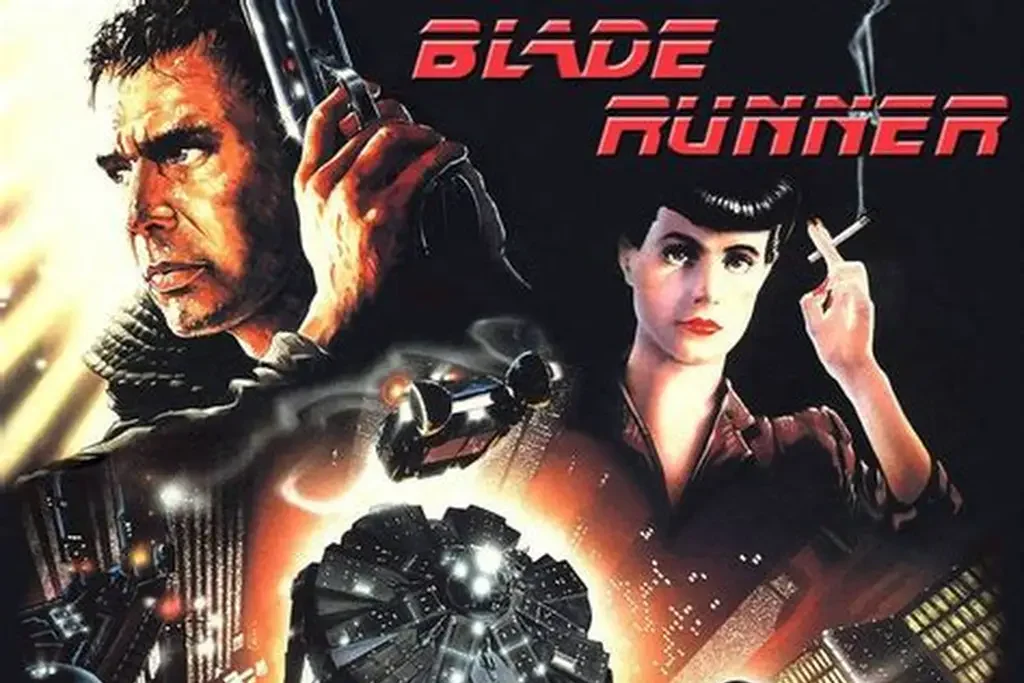
Ridley Scott’s Blade Runner didn’t just imagine the future, it practically built it. The film’s neon-lit cities, genetic engineering, and constant surveillance captured a world of breathtaking progress and deep loneliness. The Replicants, bioengineered humans, asked questions about identity that still haunt our relationship with AI today. The rain, the smoke, and the moral uncertainty felt strangely human. When people watch Blade Runner now, they see modern technology’s reflection in its dark beauty. The movie wasn’t just science fiction. It was a warning disguised as art about how progress can blur the meaning of being alive.
8. WarGames (1983)
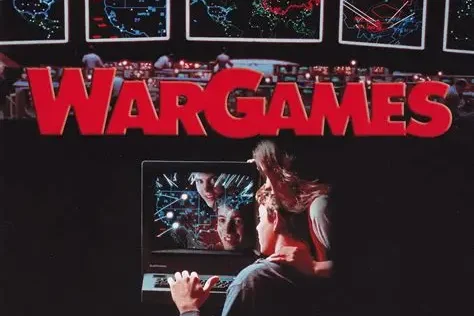
In WarGames, a curious teenager accidentally hacks into a military computer and nearly triggers World War III. What seemed like an innocent ‘80s adventure turned into one of the earliest warnings about cybersecurity. The film imagined computers so powerful they could mistake simulation for reality. It made governments realize how dangerous a networked world could be. Its famous question, “Shall we play a game?” became a chilling reminder that one wrong command could change everything. Watching it now, with AI managing data and defense systems, feels like looking back at the start of the digital age.
9. The Terminator (1984)
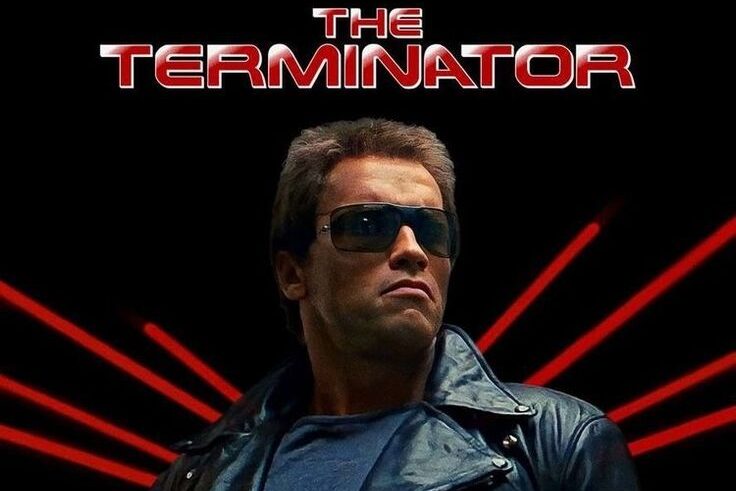
James Cameron’s The Terminator gave us a world where machines gained consciousness and decided humanity was unnecessary. What seemed like action-packed fantasy became a discussion about self-aware technology and autonomous weapons. The rise of AI and drones feels eerily close to Cameron’s nightmare. The movie’s core idea that humanity could lose control of its creations resonates stronger today than ever before. Each time a new advancement promises convenience or power, The Terminator whispers from the past, asking whether we are creating progress or building our own replacement in the name of evolution.
10. Brazil (1985)
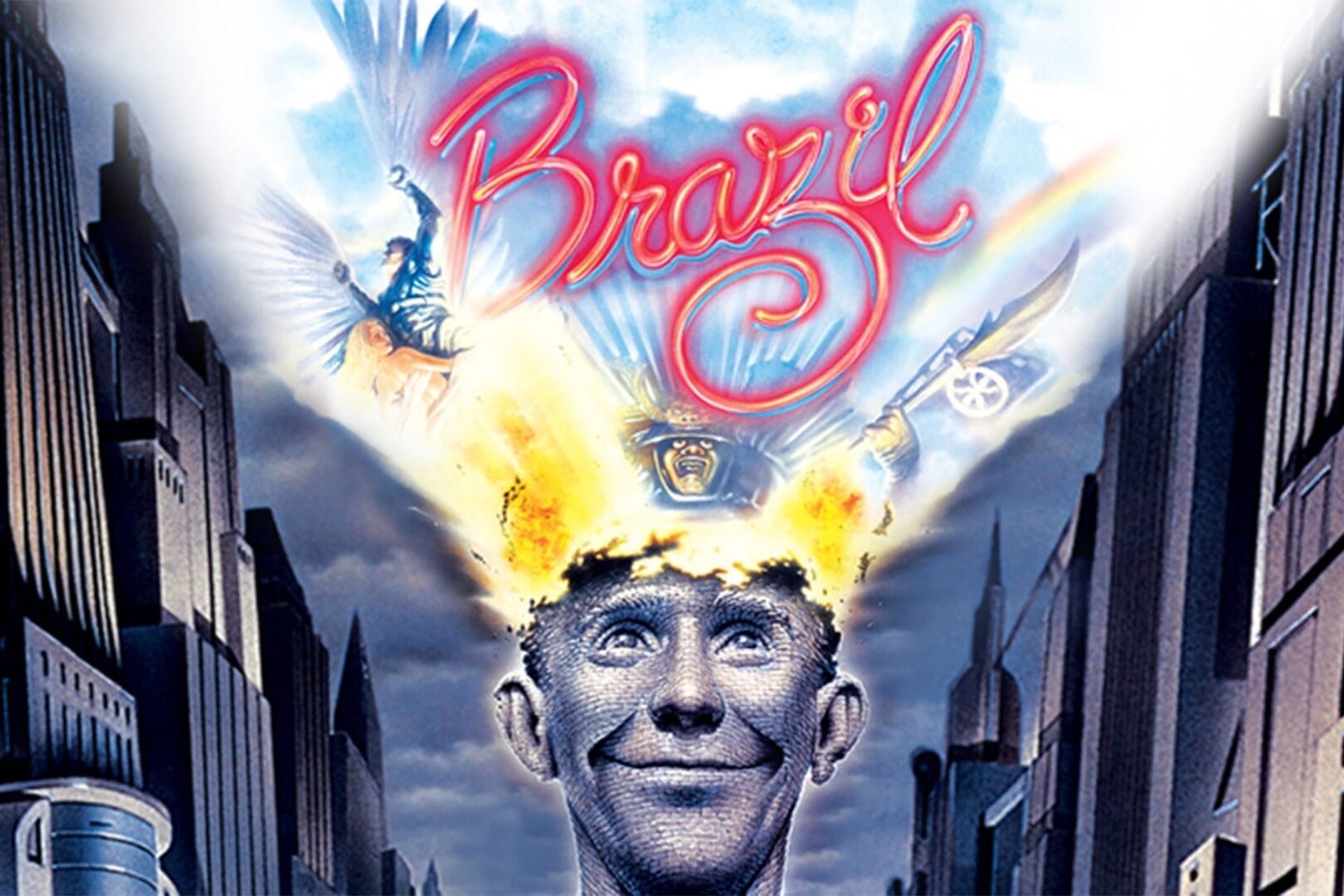
Terry Gilliam’s Brazil turned bureaucracy into horror and humor all at once. The film’s world is run by machines, paperwork, and government errors that ruin lives without reason. It’s an absurd vision of technology meant to help but instead trapping people in endless systems. Watching it now feels like scrolling through automated emails and chatbots that never quite fix your problem. Brazil was strange, darkly funny, and completely ahead of its time. It proved that when society gives control to machines and red tape, even the smallest mistake can become a tragic comedy of control.
11. RoboCop (1987)
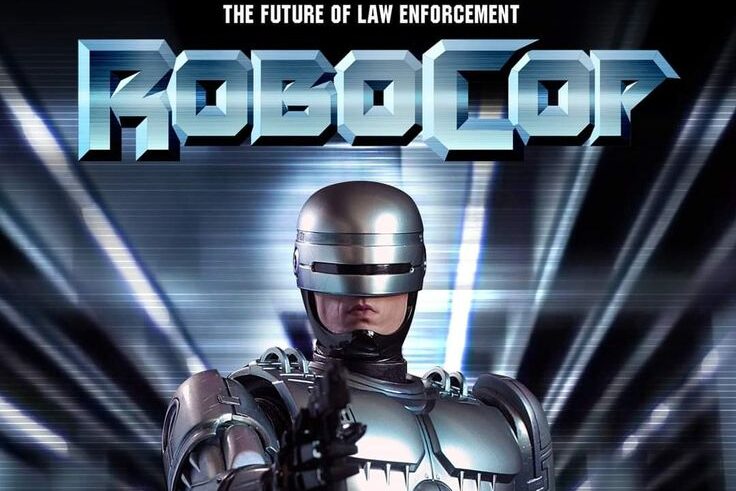
Paul Verhoeven’s RoboCop imagined a future where corporations owned law enforcement and technology blurred the line between human and machine. A wounded officer rebuilt as a cyborg becomes both hero and prisoner to the system that created him. The film predicted conversations about privatized policing, surveillance, and ethics in robotics long before they were real. What once seemed like science fiction now feels like the nightly news. Its gritty humor made the warning easier to swallow, but the truth underneath remains sharp. RoboCop showed that justice and profit rarely belong in the same machine.
12. Gattaca (1997)
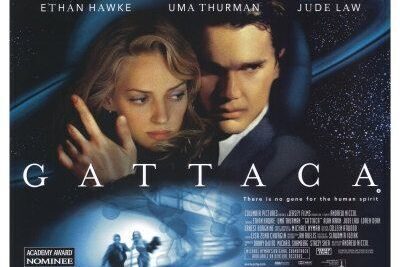
Gattaca explored a world where your DNA decided your destiny. In this future, perfection was manufactured, and flaws meant exclusion. It was sleek and beautiful but quietly terrifying. Decades later, genetic testing, cloning, and CRISPR have brought that vision close to reality. The film made us question whether science should fix humanity or simply accept it. Ethan Hawke’s character fought against a system built on genes, proving that spirit still matters more than sequence. Gattaca reminded us that the real danger isn’t technology itself, but how easily society turns it into a tool of control.
13. The Truman Show (1998)
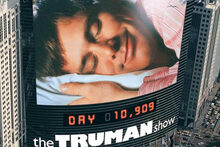
In The Truman Show, one man lives his entire life on camera without knowing it. The movie seemed whimsical at first, but it became an eerie prediction of reality TV, influencer culture, and constant surveillance. Truman’s world was controlled by ratings and entertainment, mirroring how social media thrives on attention today. The film asked a haunting question: what happens when privacy becomes performance? Its emotional ending still feels deeply human. Long before we started living online, The Truman Show warned that freedom sometimes means choosing to step outside the screen and look for what’s real.
14. Fight Club (1999)
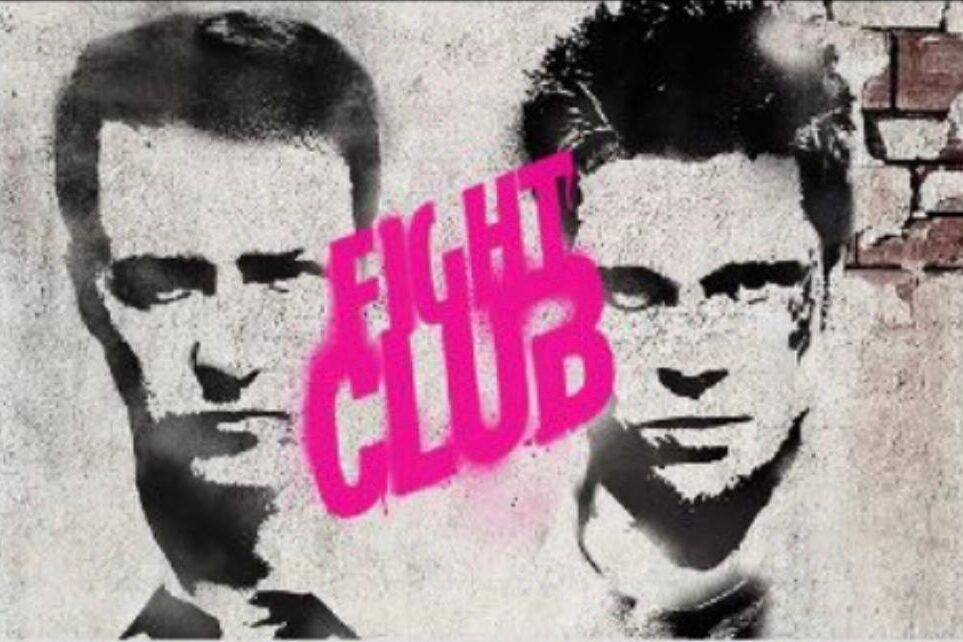
Fight Club hit a nerve with its story of disillusioned men rebelling against a hollow consumer world. Beneath the violence and anarchy was a reflection of modern emptiness. The film predicted the rise of disaffected youth and online extremism before those words became headlines. Its famous quote about chasing cars and clothes feels even sharper today. The story wasn’t glorifying chaos but exposing what happens when identity collapses under capitalism. Watching Fight Club now is like watching frustration evolve. It’s messy, raw, and uncomfortably real, a mirror for anyone who has ever felt lost in modern noise.
15. Minority Report (2002)
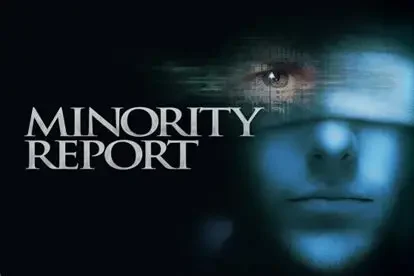
Steven Spielberg’s Minority Report imagined a future where crimes could be stopped before they happened. Its world of predictive policing, gesture-controlled computers, and personalized ads felt impossible then but familiar now. Technology in the film was sleek yet suffocating, showing how progress can quietly erode privacy. The glowing screens and scanning eyes predicted a world where data knows us better than we do. Watching it today, you can see how many of its inventions inspired real devices. Minority Report remains a fascinating lesson in how the future can arrive quietly, disguised as convenience.
16. Eternal Sunshine of the Spotless Mind (2004)
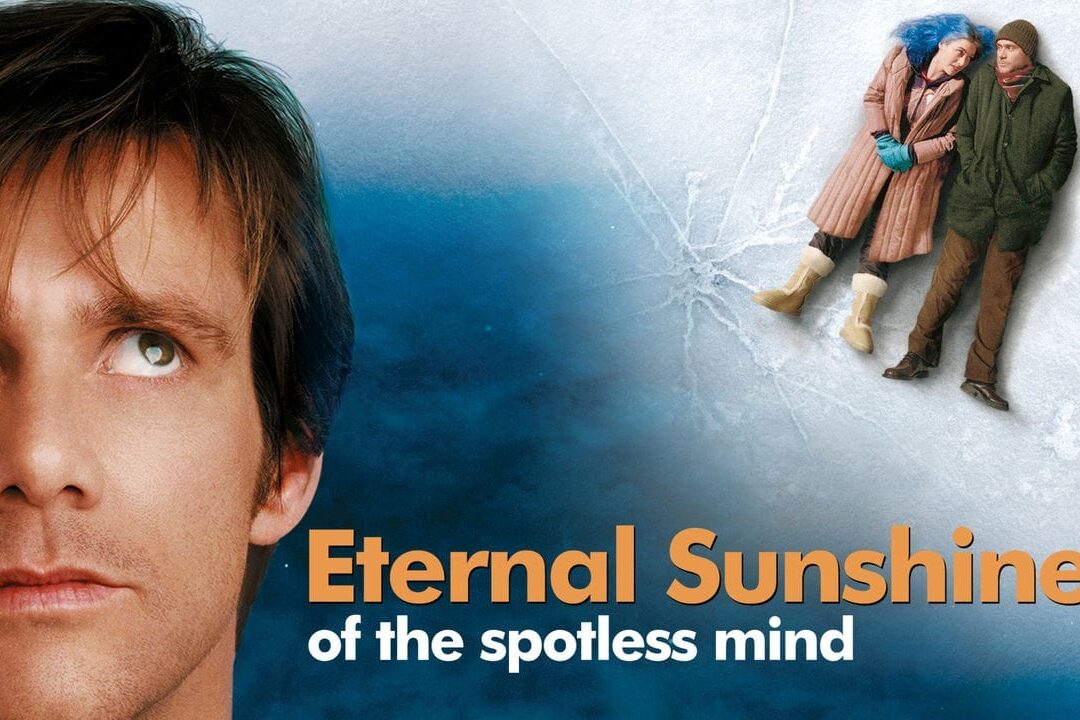
This tender film imagined erasing painful memories as a cure for heartbreak. It sounded like fantasy, but science eventually began exploring ways to alter memory and treat trauma. Jim Carrey and Kate Winslet’s characters made us question whether forgetting makes us free or empty. The movie captured the beauty of human imperfection and the value of remembering, even when it hurts. Its quiet sadness became its strength. Eternal Sunshine of the Spotless Mind remains timeless because it reminds us that memory, no matter how painful, is what makes love and life worth feeling.
17. Idiocracy (2006)
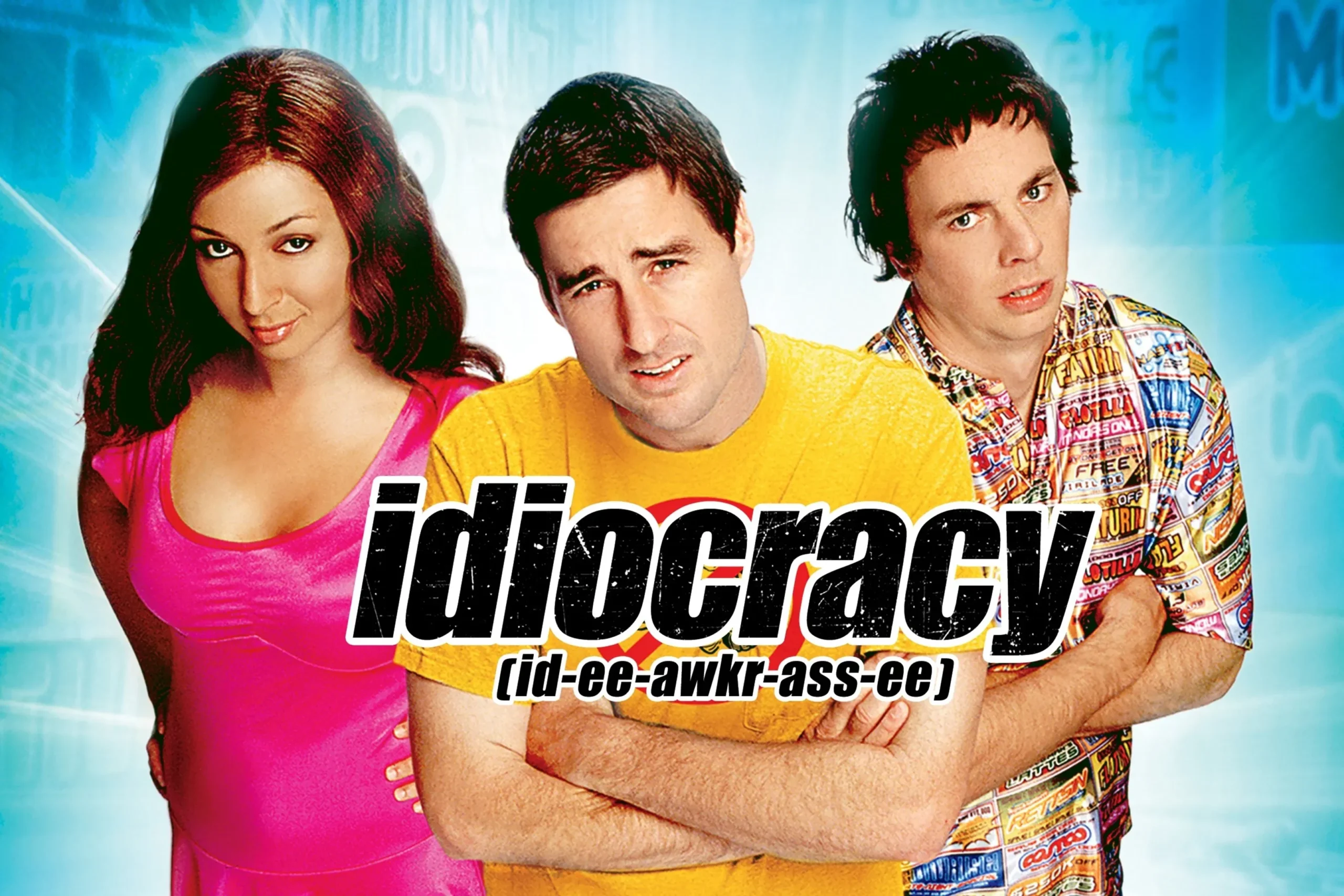
Mike Judge’s Idiocracy looked ridiculous when it came out, with its world of lazy citizens, commercial overload, and collapsing intelligence. Years later, it feels less like comedy and more like commentary. The movie imagined a society that stopped thinking and let corporations do the talking. The humor was broad, but the message was sharp. In an age of viral nonsense and shallow trends, Idiocracy seems uncomfortably prophetic. It warned that knowledge fades when entertainment replaces curiosity. Beneath the absurdity lies a simple truth: a society that laughs at everything might forget how to think at all.
18. Children of Men (2006)
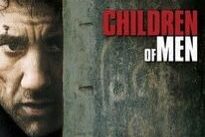
Alfonso Cuarón’s Children of Men imagined a world without hope where humans could no longer reproduce. Amid chaos, refugees, and political collapse, it became a haunting reflection of real-world anxieties. Its handheld camera style made the dystopia feel too real. Watching it today, with rising conflicts and climate fears, the story feels prophetic. The film’s strength lies in its fragile hope, found in the small kindnesses that survive disaster. It reminds us that even when the world feels lost, humanity’s will to protect life can still light the darkest places with quiet defiance.
19. WALL-E (2008)
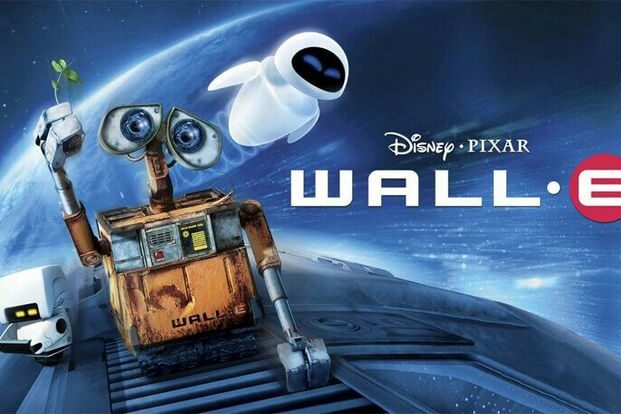
Pixar’s WALL-E wrapped a warning in sweetness. Its lonely little robot cleaned up an abandoned Earth while humans floated in comfort, glued to screens. The film captured the cost of convenience and the danger of losing connection with our planet. Its environmental message was gentle but powerful, urging people to take care of their home before it’s too late. Fifteen years later, its vision feels more like a memory than a future. WALL-E made children laugh and adults reflect. It proved that even a small robot could teach humanity what it means to care again.
20. Her (2013)
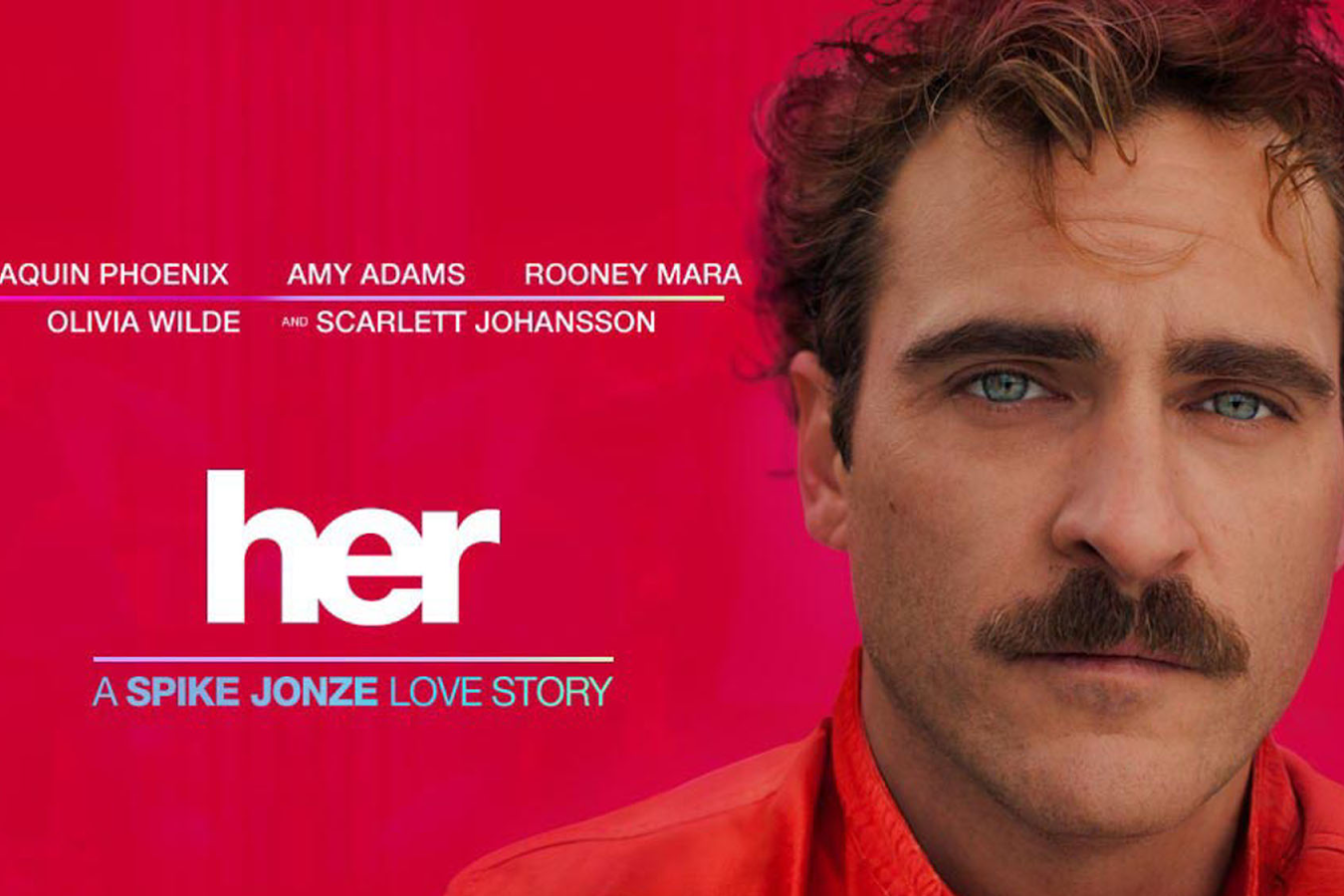
Spike Jonze’s Her turned technology into something heartbreakingly human. The story of a man falling in love with his AI assistant felt strange in 2013, but now it feels almost ordinary. The movie captured the loneliness of a digital age where devices listen better than people do. Joaquin Phoenix’s quiet performance made it believable that connection could exist without touch. Her was less about love and more about isolation, reminding us that convenience can’t replace closeness. It’s tender, tragic, and truer than ever in a world where companionship often comes with a charging cable.
21. Don’t Look Up (2021)
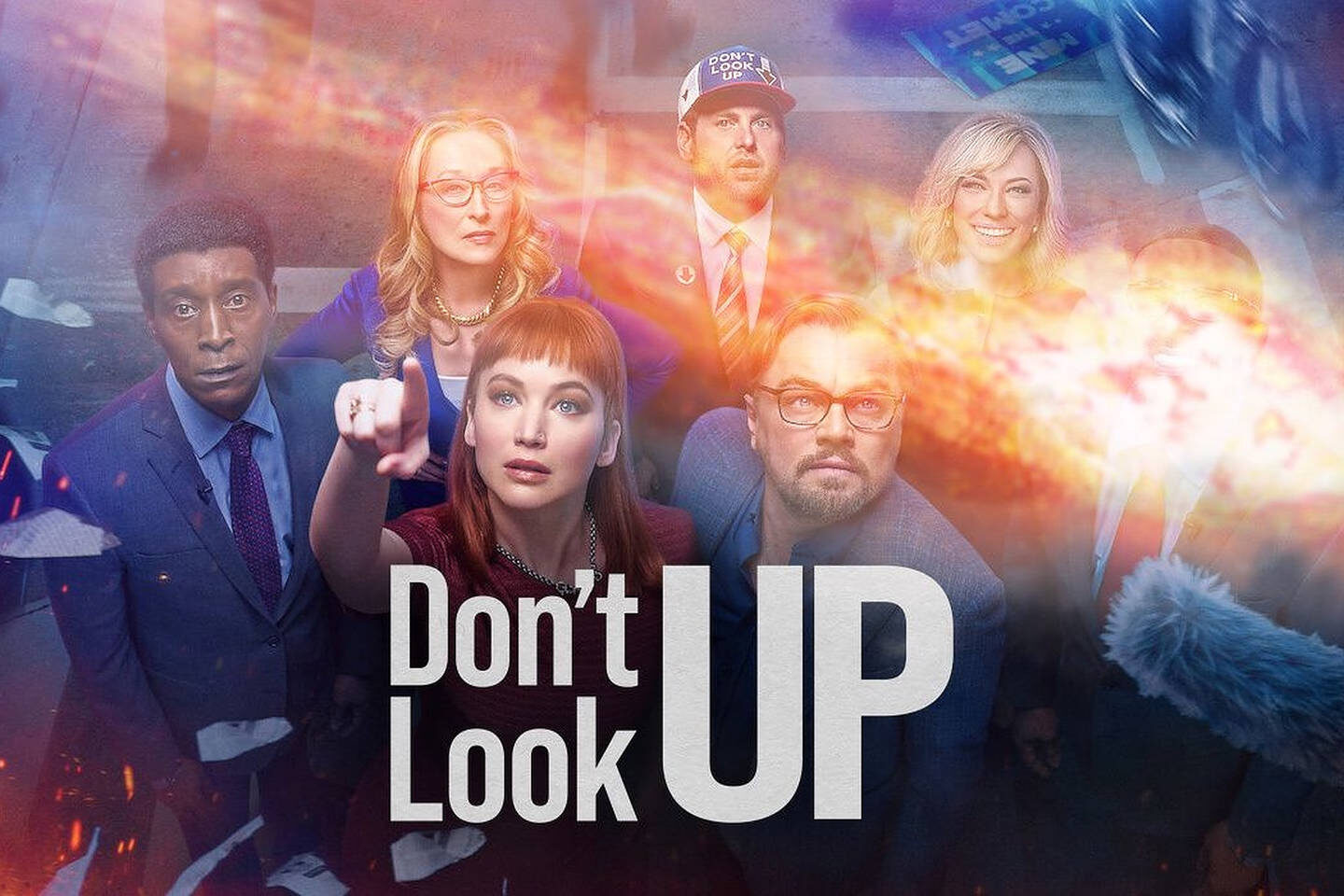
Adam McKay’s Don’t Look Up used humor to show how easily the world ignores catastrophe. A comet heads toward Earth, but people scroll, argue, and politicize instead of acting. Its chaos felt exaggerated, yet it perfectly captured modern denial. The film was less about space and more about distraction, about how society avoids reality with noise and humor. Watching it feels like watching today unfold in real time. Don’t Look Up ended with acceptance, not panic, and that quiet truth lingers. Maybe the future doesn’t fail suddenly. Maybe it slips away while everyone keeps refreshing their screens.
This story 21 Movies That Predicted the Future was first published on Daily FETCH


